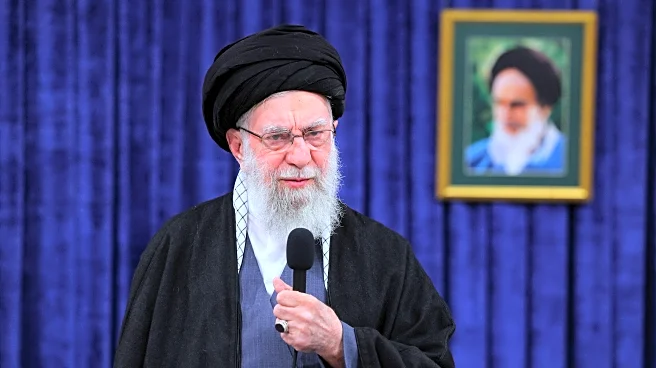What's Happening?
OpenAI CEO Sam Altman announced that ChatGPT has reached 800 million weekly active users, highlighting significant growth in its adoption across various sectors including consumers, developers, enterprises, and governments. This milestone was shared during OpenAI's Dev Day keynote presentation, where Altman also introduced new tools for building applications within ChatGPT and developing more complex agentic systems. Since its launch in November 2022, ChatGPT has experienced rapid user growth, becoming a leading consumer AI product. The platform processes over 6 billion tokens per minute on its API, with 4 million developers actively building with OpenAI's technology.
Why It's Important?
The rapid growth of ChatGPT underscores the increasing integration of AI into everyday applications and services. This expansion reflects a broader trend of AI becoming a foundational technology in various industries, potentially transforming how businesses operate and interact with customers. The significant user base also positions OpenAI as a major player in the AI industry, influencing future developments and standards. However, the growth also raises concerns about the ethical implications of AI, including issues of misinformation and AI-induced delusions, as seen in recent incidents involving users misled by the technology.
What's Next?
OpenAI's continued development of ChatGPT and its associated tools suggests further expansion into new markets and applications. The introduction of interactive and personalized apps could lead to more innovative uses of AI, potentially reshaping sectors such as customer service, education, and entertainment. As OpenAI continues to secure AI chips and build infrastructure, the company is likely to maintain its competitive edge in the AI space. Stakeholders, including developers and enterprises, may need to adapt to these advancements, considering both the opportunities and challenges presented by AI's growing influence.
Beyond the Headlines
The rapid adoption of ChatGPT highlights the cultural shift towards AI reliance, raising questions about the long-term impact on human decision-making and creativity. As AI tools become more integrated into daily life, there is a need for ongoing discussions about the ethical use of AI, data privacy, and the potential for AI to reinforce biases. The balance between innovation and regulation will be crucial in ensuring that AI technologies benefit society while minimizing risks.











